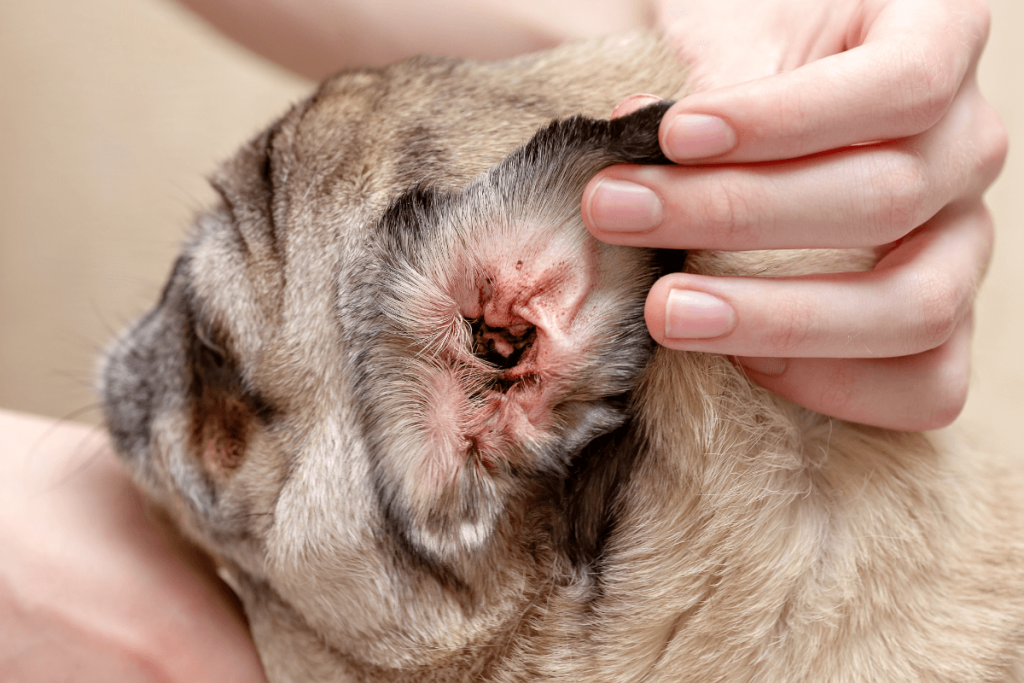Ear infections are a pretty common ailment for dogs due to the shape of their ear canals. Pups with longer, floppy ears – such as cocker spaniels and labradoodles – can be even more prone to infections. Ear infections can cause quite a bit of discomfort for your pooch and if left untreated, can even cause permanent damage to their hearing.
What causes ear infections in dogs?
Ear infections can occur for a number of reasons, including:
- Bacterial infections
- Overgrowth of yeast
- Mites
- Fungus
- Allergies
- Foreign objects in the ear
What are the signs of an ear infection?
Spotting the signs that your pet has an infection can sometimes be a bit tricky as some dogs don’t display any symptoms at all while others may just appear to be scratching as usual.
Some of the more common symptoms include:
- Red, irritated or crusting skin inside the ears
- Discharge that can be brown, yellow, white or green in colour
- Strong smell coming from the ears
- Head shaking
- Scratching or pawing at the ear
- Tilting of the head
How we diagnose an ear infection
If you suspect your dog may have an ear infection, it’s important that you take them to the vet to get a physical examination as soon as possible.

Your vet will give your pup a thorough check-up and will examine their ears to see if the ear canal is inflamed, and if there is any evidence of mites or foreign objects that could be causing them discomfort.
Following the physical examination, your vet may take a swab of the ear for further diagnostic testing if required.
How ear infections in dogs are treated
Depending on the cause of the ear infection, your vet may prescribe antibiotics or an anti-fungal treatment to be applied to the ears. Within a day or two of commencing treatment, your dog will start to feel some relief. If the infection is allergy-related, your vet will discuss additional testing and longer-term treatment options to prevent further ear infections.
Preventing ear infections
There are a few things you can do to try and lessen the chances of your dog from developing ear infections.
- Try and keep your dog’s ears as dry as possible – infections love a moist environment, so after swimming, gently dry the entrance to their ear
- Get your dog groomed regularly, and get them to keep the hair in their ears short
- If you have a spaniel or poodle, it may be worth discussing with your vet the regular application of a dog-specific ear cleaning solution
- Know what is “normal” for your dog’s ears, so if anything changes, you can get it checked out by your vet
Get more advice from our small animal clinic vets
If your dog is displaying signs of an ear infection, or you have any questions about how to care for their ears, our small animal clinic can help. We are located at the Springwood Place shopping complex in Gawler East. You can call our team on 08 8318 1801.

